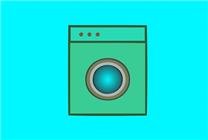Maximize Your Appliances: How to Safely and Efficiently Use Refrigerators, Washing Machines, and Air Conditioners
Key Takeaways:
- Proper appliance usage can prolong lifespan and ensure safety.
- Common misconceptions can lead to increased energy consumption and appliance wear.
- Simple adjustments in routine can enhance efficiency and performance.
With the rise in living standards, household appliances such as refrigerators, washing machines, and air conditioners are now essentials in modern homes. However, even top-tier brands can underperform, suffer wear, or pose safety risks when used incorrectly. Below, we explore common misconceptions surrounding these three appliances and provide best practices for safer and more efficient use.
Refrigerators: The Key to Safe Food Storage
1. Avoid Cooling Hot Foods Immediately
Many households make the mistake of placing hot dishes directly in the refrigerator. This practice raises the internal temperature, forcing the compressor to work harder, thereby wasting energy. Allowing food to cool to room temperature before refrigeration is crucial for both energy efficiency and food safety.
2. Be Mindful of Packing
Overstuffing a refrigerator may seem efficient, but improper air circulation can lead to uneven cooling. Foods in the middle or lower shelves may not reach safe temperatures, increasing the risk of bacterial growth. Organizing items while leaving space for airflow ensures even cooling and maintains food freshness.
3. Separate Food Types
Storing raw meat, seafood, cooked food, fruits, and vegetables together without separation can lead to cross-contamination. To avoid health risks and preserve flavors, divide these food items into distinct zones and use sealed containers for extra protection.
4. Maintain Adequate Space for Airflow
Ensure that the back of the refrigerator has at least 5-10 cm of space for optimal heat dissipation. Regularly clean the heat sinks to prevent dust accumulation, which can hinder efficiency and shorten the appliance’s lifespan.
Washing Machines: Cleaning Smartly
1. Avoid Overloading
Stuffing a week’s worth of laundry into the washer can strain the machine, leading to motor wear and subpar cleaning results. Following the manufacturer’s recommended load limits—typically 3-8 kg for drum washers—ensures effective cleaning without damaging the appliance.
2. Choose Appropriate Wash Settings
While hot wash cycles may seem like a good option for effective cleaning, they can damage delicate fabrics and increase energy consumption. Opting for lower temperatures and gentler cycles when washing items like wool or silk can prolong garment life.
3. Use Detergents Wisely
Excess detergent can leave residue on clothes and inside the washing machine, leading to skin irritations and odor issues. Always adhere to recommended measurements to avoid these problems.
4. Routine Cleaning of the Appliance
Neglecting the interior of the washing machine can lead to mold and bad odors. Running the self-cleaning program regularly, or using specialized cleaning agents, maintains hygiene and improves laundry outcomes.
Air Conditioners: Ensuring Comfort Efficiently
1. Minimize Frequent On/Off Cycles
Constantly turning the air conditioner on and off can place excessive strain on the compressor. Instead, consider using the standby function, especially if you will be away briefly.
2. Optimal Temperature Settings
Setting the air conditioning temperature too low or too high can create discomfort and waste energy. Ideally, maintain a temperature around 26°C in summer and 20-22°C in winter. This helps to balance comfort with efficiency.
3. Regular Maintenance
Cleaning air conditioner filters and ensuring the outdoor unit is free from dust will enhance airflow and efficiency. Regular upkeep prevents issues that can lead to increased energy costs and equipment malfunction.
Final Thoughts: Prolonging Appliance Lifespan
Refrigerators, washing machines, and air conditioners are integral to our daily lives. Utilizing them correctly not only enhances their performance but also extends their lifespan. Simple actions such as managing washing loads, allowing food to cool before refrigeration, and establishing ideal temperature settings can lead to significant benefits.
Regardless of the sophistication of your appliances, improper usage can undermine their effectiveness. By adopting recommended practices, you can save both money and hassle, making your home life more comfortable and efficient.








